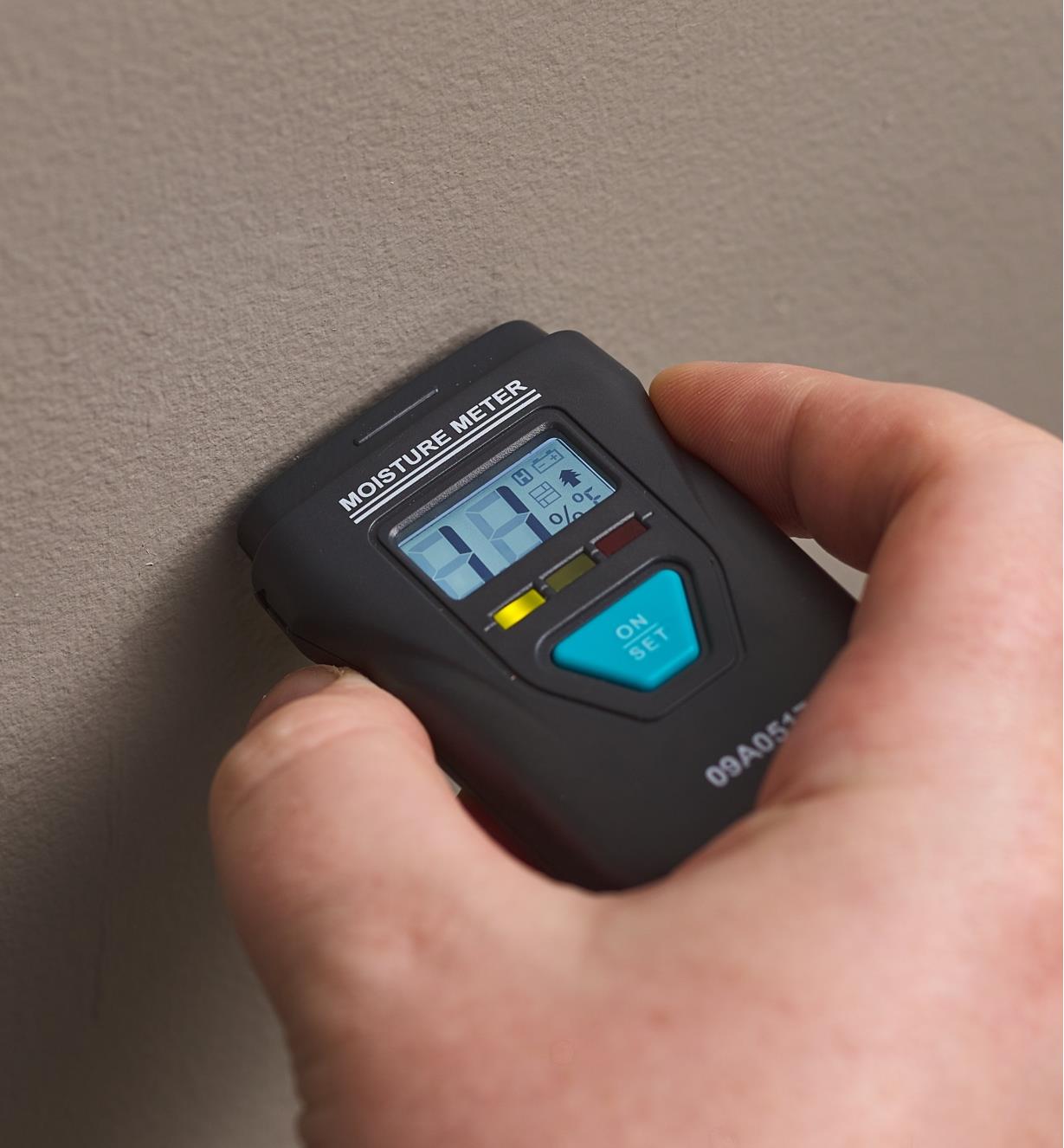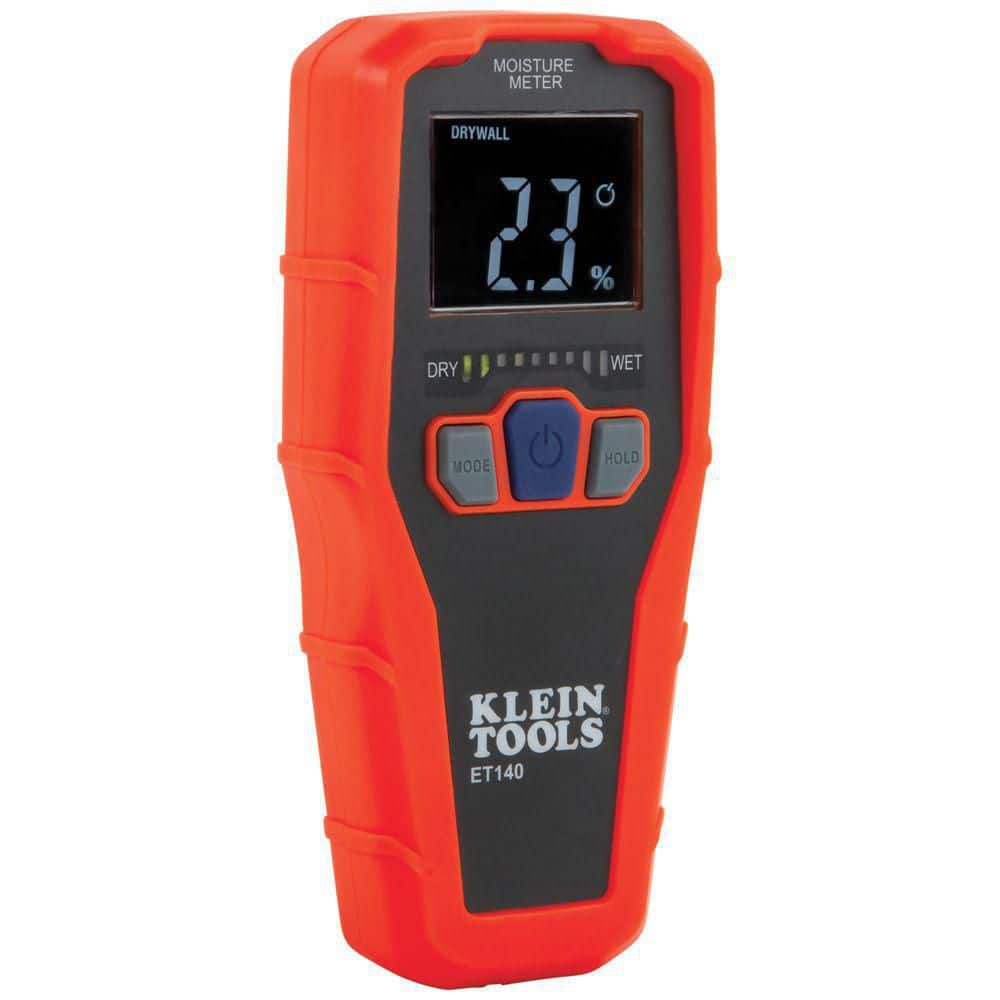The Ultimate Guide to Moisture Meters: A Comprehensive Introduction and Exactly How They Can Conserve You Cash
In the world of building upkeep, building, and different sectors, the importance of accurately measuring moisture degrees can not be overemphasized. Moisture meters function as vital devices in finding and keeping an eye on moisture content in materials, helping in stopping expensive problems and making sure the quality of products. Comprehending the nuances of different sorts of moisture meters, their applications, and the prospective cost-saving advantages they provide can be a game-changer for specialists and services alike. Discovering how these devices can not only improve procedures but also add to financial savings is a journey worth getting started on.
Kinds Of Moisture Meters
One typical type is the pin-type wetness meter, which measures the electric resistance in between 2 pins placed into a material. Pinless moisture meters, on the other hand, usage electro-magnetic sensing unit plates to check a bigger area without causing damages to the material's surface.
Infrared wetness meters measure the thermal homes of a product to identify its moisture web content non-invasively, making them useful for applications where pin or pinless meters may not be suitable. Comprehending the various types of dampness meters readily available can help sectors pick the most suitable tool for their details dampness measurement needs.

Advantages of Using Moisture Meters

In addition, making use of moisture meters can result in enhanced power effectiveness. By determining locations with high wetness degrees, such as leaks or bad insulation, adjustments can be made to improve energy preservation and lower utility costs. In farming setups, dampness meters play a crucial role in maximizing crop returns by allowing farmers to keep an eye on soil moisture degrees and make notified watering choices. On the whole, the benefits of utilizing wetness meters extend across numerous sectors, giving cost-effective options and promoting better quality assurance methods.
How to Select the Right Moisture Meter
Picking the proper moisture meter involves taking into consideration essential aspects such as product compatibility, measurement range, and calibration accuracy. When picking a moisture meter, it's important to make sure that the meter is appropriate for the particular product you will be testing. Different products have differing electric properties that can impact moisture readings, so choosing a meter developed for your product is vital for exact results. Additionally, take into consideration the measurement range of the dampness meter. Make sure that the meter can find moisture levels within the array needed for your applications. Calibration accuracy is an additional crucial aspect to bear in mind (Moisture Meter). Go with a moisture meter with trustworthy calibration to make certain specific and constant analyses. Some meters might need regular calibration modifications, so understanding the calibration process is very important. By thoroughly evaluating these factors, you can choose a dampness meter that satisfies your demands and gives accurate moisture dimensions for your jobs.
Proper Techniques for Moisture Meter Use
To make certain precise moisture analyses and maximize the efficiency of a moisture meter, employing correct methods is necessary. When using a pin-type dampness meter, put the pins or probes into the product being checked until they make full get in touch with. By adhering to these correct methods, customers can count on their dampness explanation meter to supply reliable dampness levels, aiding in preventing expensive damages or guaranteeing high quality in numerous applications.

Price Financial Savings Via Moisture Meter Applications
Exactly how can the critical application of dampness meters lead to considerable expense savings across various industries? Moisture meters play an essential function in price savings by preventing potential damage and guaranteeing top quality control in different industries. In the agriculture market, moisture meters aid in identifying the ideal time for collecting crops, stopping over-drying or excess wetness that can affect the last item's top quality. This precise surveillance helps farmers stay clear of unnecessary losses and maximize their return.

Additionally, in the food handling market, dampness meters are vital for checking item top quality and guaranteeing compliance with safety laws. By accurately determining wetness material in foodstuff, producers can stop perishing, maintain freshness, and minimize waste, resulting in significant price savings. On the whole, the tactical application of wetness meters is a valuable financial investment that can lead to substantial cost decreases and enhanced effectiveness throughout different markets.
Final Thought
In conclusion, dampness meters are useful tools for detecting and measuring moisture levels in different products. By utilizing the ideal moisture meter and following proper methods, customers can effectively prevent pricey damages triggered by excess wetness.
Moisture article source meters serve as essential tools in detecting and keeping track of moisture material in products, aiding in preventing expensive problems and making certain the high quality of items. Infrared wetness meters measure the thermal homes of a product to establish its wetness material non-invasively, making them beneficial for applications where pin or pinless meters might not be ideal.Dampness meters use indispensable benefits in browse around here accurately examining and keeping track of wetness levels in varied products and atmospheres. In farming setups, wetness meters play a crucial duty in optimizing crop yields by enabling farmers to monitor soil moisture levels and make informed watering decisions.In conclusion, dampness meters are beneficial devices for discovering and gauging dampness degrees in various materials.